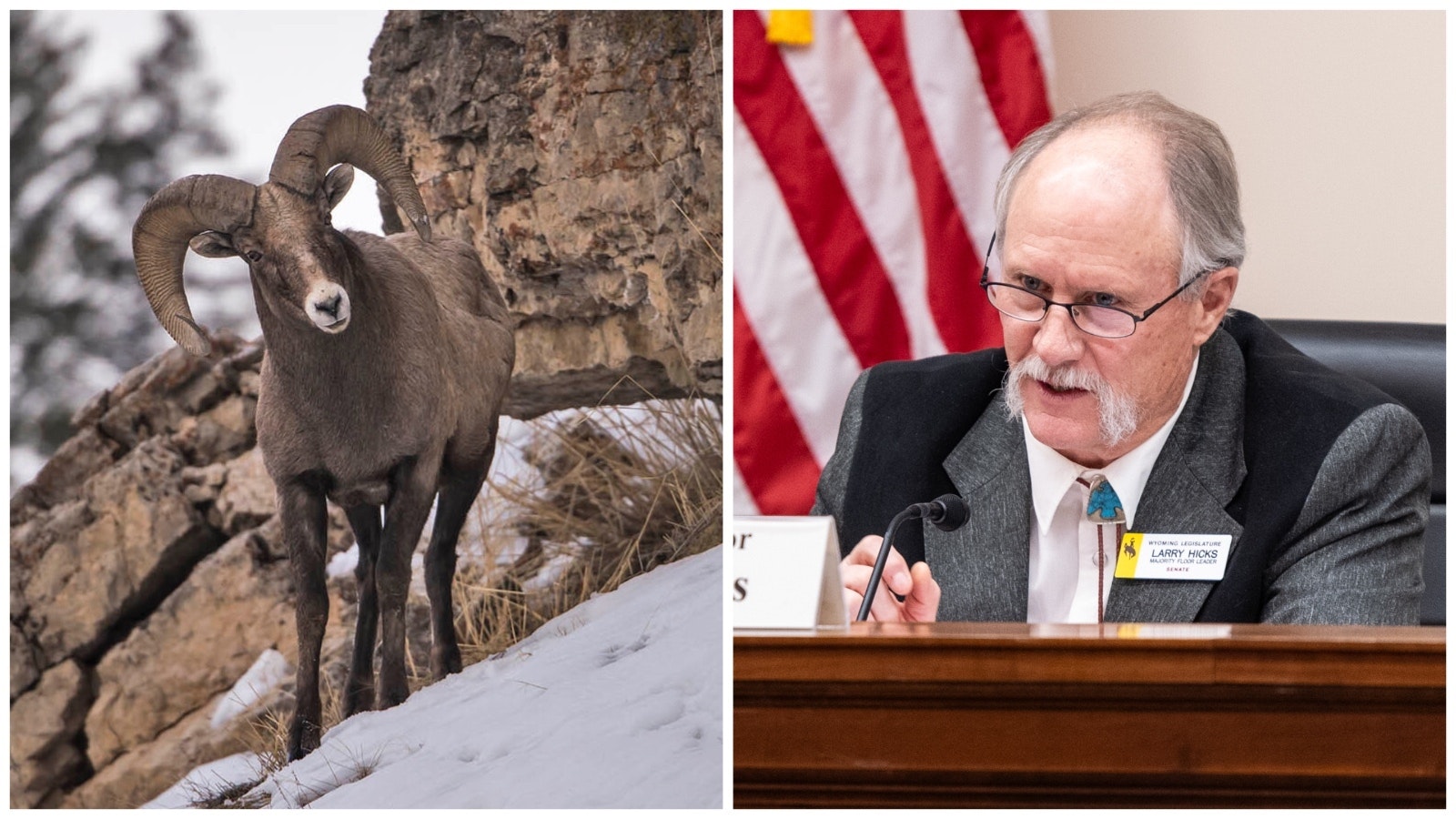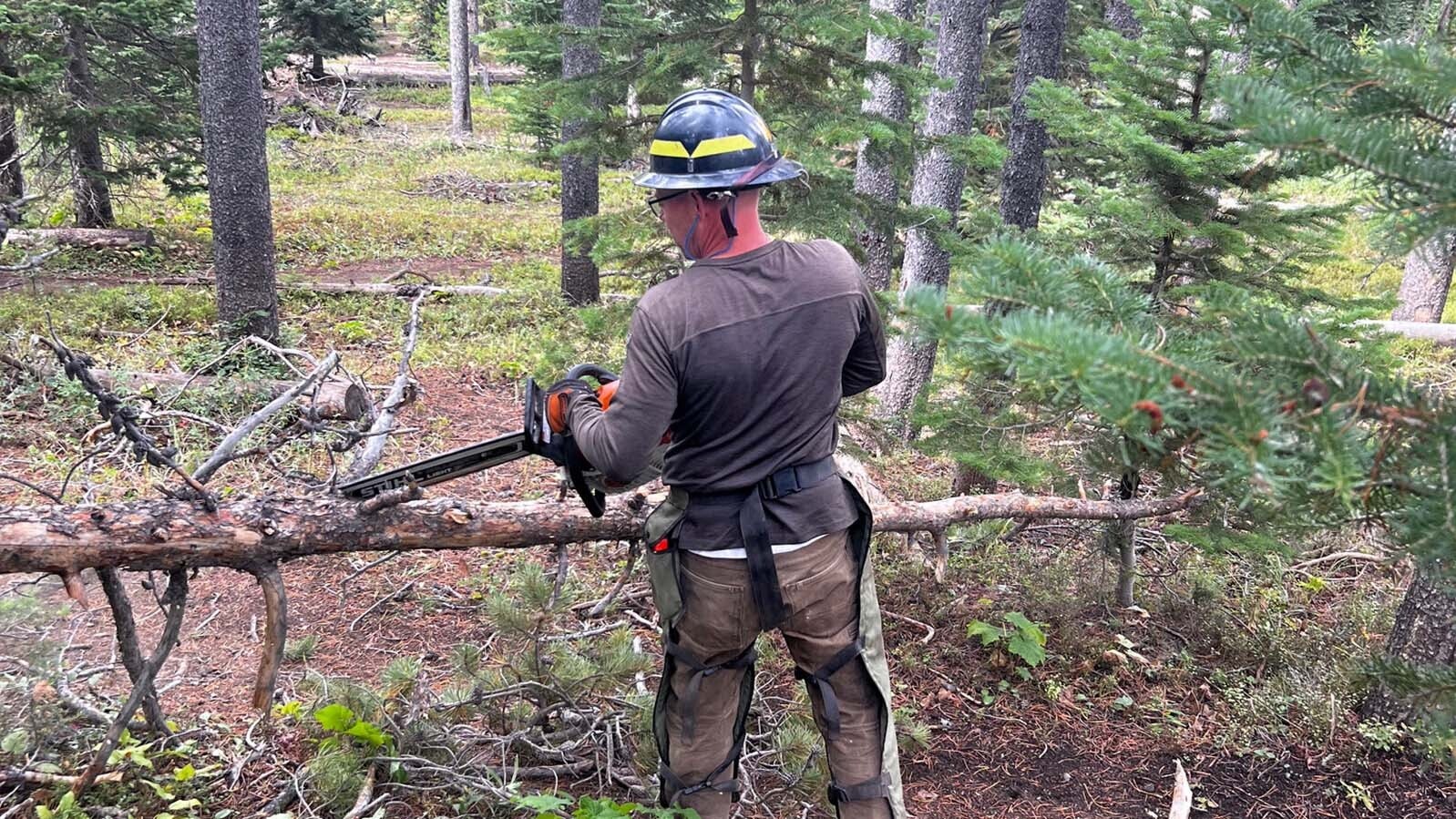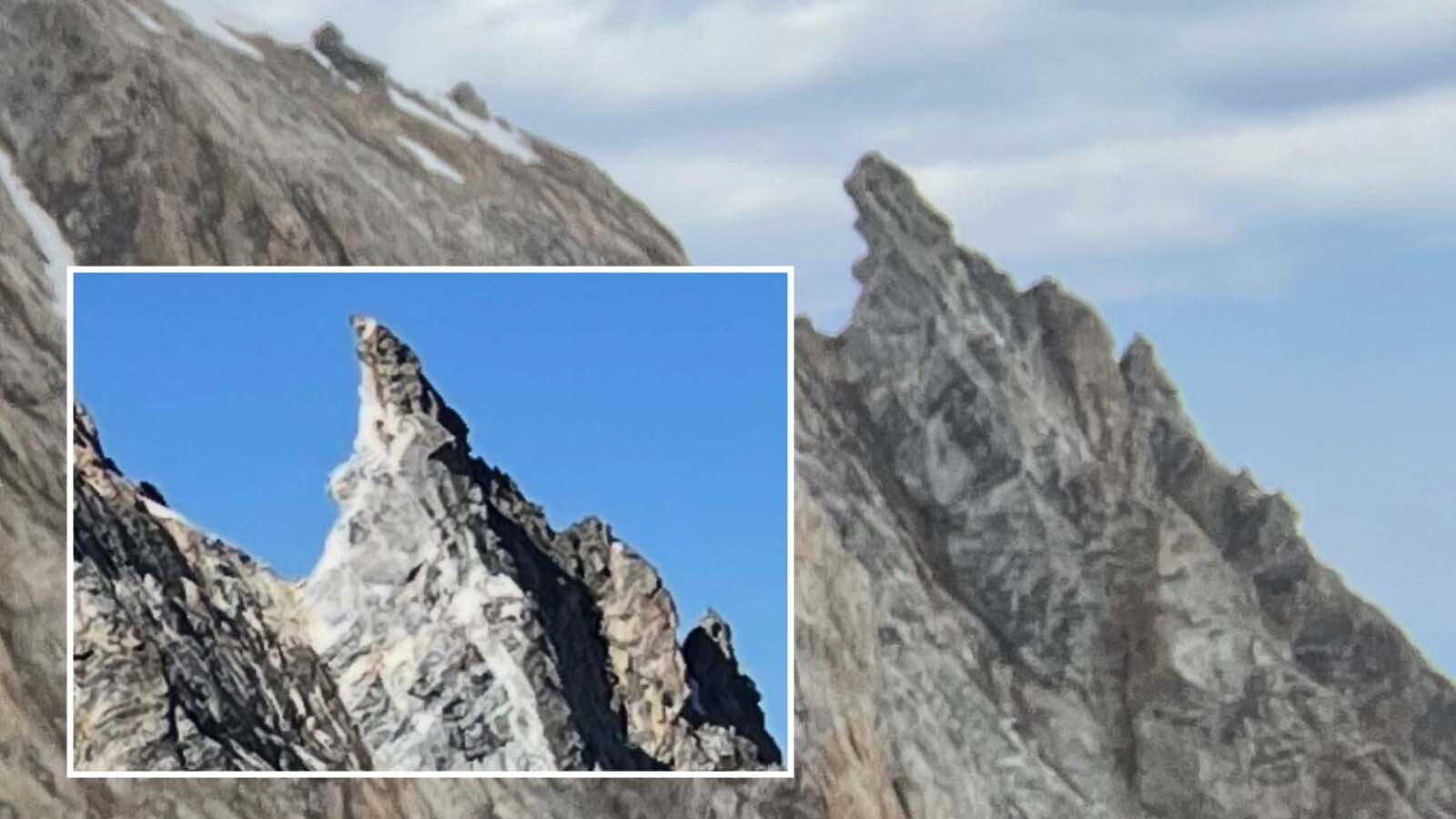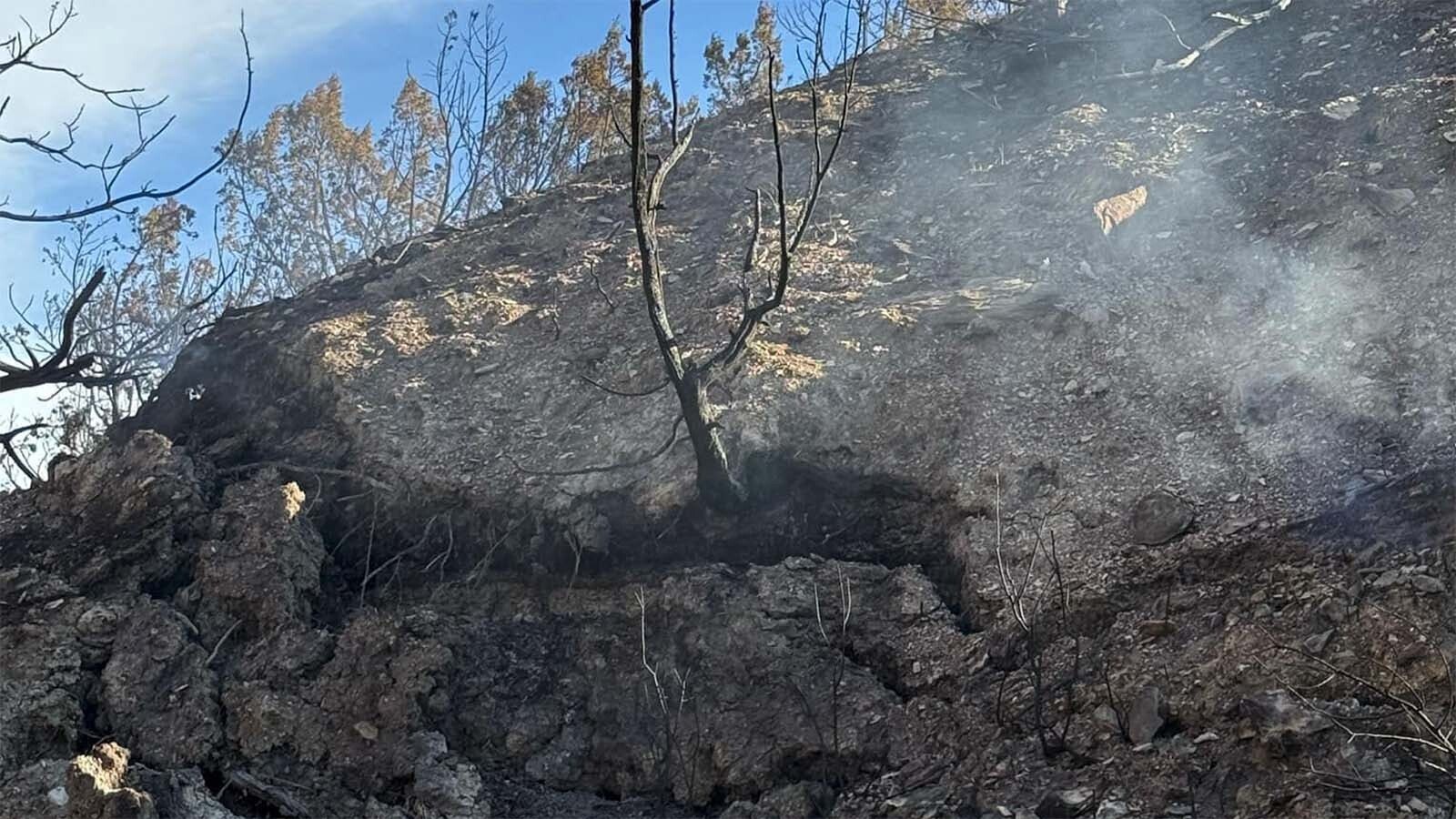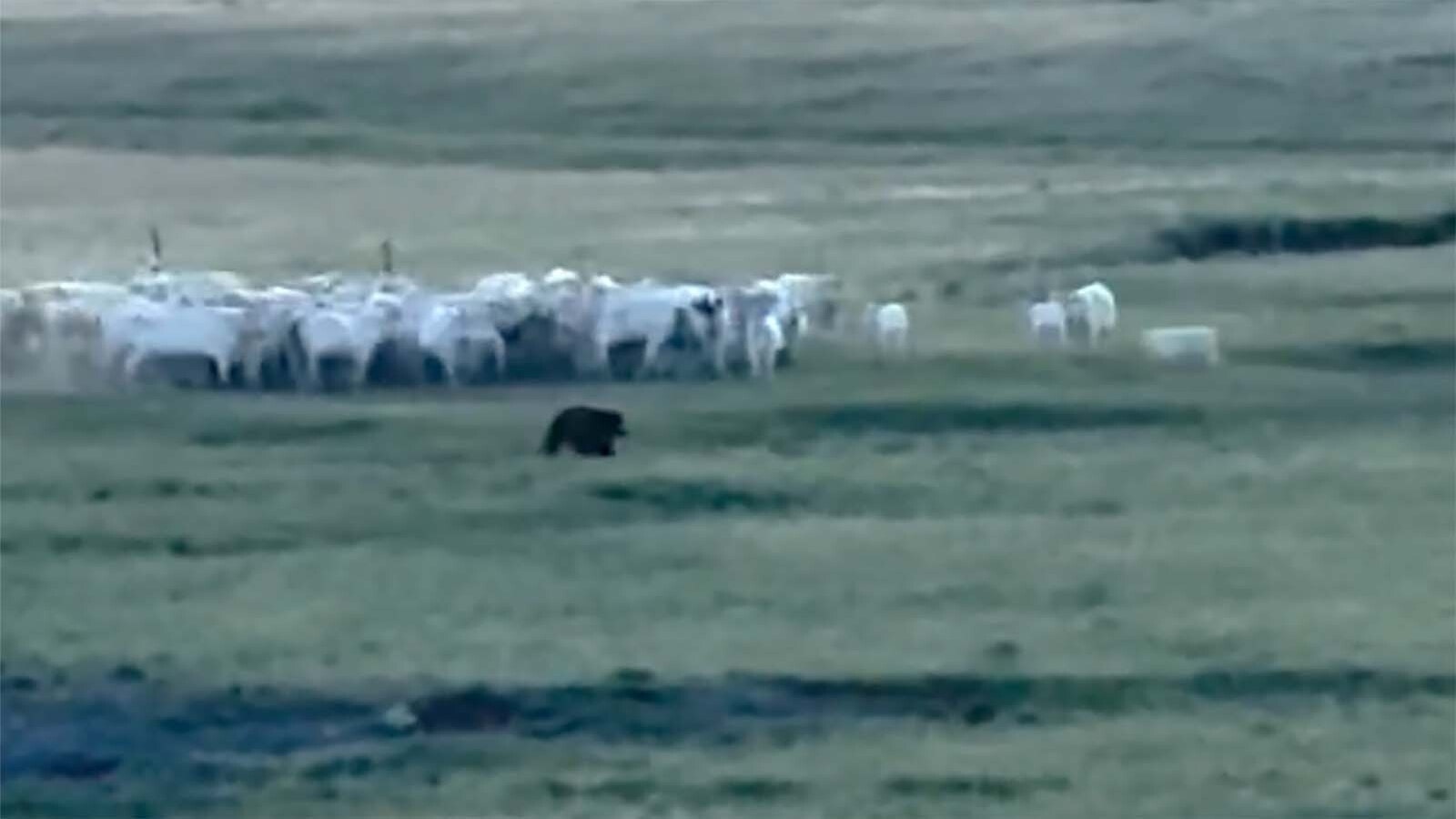Despite some opposition, a bill that could clear a path toward bighorn sheep reintroduction in remote central Wyoming sailed through a committee on its way to the state House floor.
The bill could result in “yanking the (bighorn) sheep back and forth” over perceived threats to livestock grazing, Wyoming Backcountry Hunters and Anglers lobbyist told members of a legislative committee.
There’s also worry that Senate File 118 would still leave ranchers in peril of losing their grazing leases if bighorn sheep are reintroduced to the Sweetwater Rocks area, said Wyoming Farm Bureau Executive Vice President Ken Hamilton on Thursday.
“We’ve got landowners in that area that are concerned about what this will bring to them, what the impacts will be to the federal grazing,” he said.
Bill Clears Committee
The Wyoming House’s Travel, Recreation, Wildlife & Cultural Resources Committee voted unanimously to forward the bill, sponsored by Sen. Larry Hicks, R-Baggs, to the House Floor.
The committee also approved amendments brought by the Wyoming Game and Fish Department and the Wyoming Wool Growers Association.
Game and Fish suggested making the bill specific to the Sweetwater Rocks region, to avoid possibly involving an existing bighorn sheep herd just to the south in the Ferris-Seminoe region.
And the Wool Growers asked for language in the bill clarifying that the state would bear the full burden and responsibility for any concerns over bighorn and domestic sheep intermingling, or grazing leases being otherwise threatened.
Long Process
The concept behind the bill dates back to the 1990s, Hicks explained to the committee. There were concerns then over bighorn sheep and domestic sheep intermingling, he said.
It’s thought that pneumonia, which can be fatal to bighorns, can be transmitted from domestic sheep.
Federal agencies started eliminating domestic sheep grazing allotments in some other states because of that. So Wyoming formed a working group in 2000 to prevent that from happening here, Hicks said.
The Wyoming bighorn-domestic sheep working plan was written in 2004, and codified into state statues by the Legislature in 2015, he said.
The plan has been used to facilitate successful bighorn sheep reintroductions, such as in the Bighorn Mountains, without causing livestock grazers to be forced out, Hicks said.
SF 118 builds on that principle and strengthens it, perhaps making it feasible to reintroduce bighorn sheep to Sweetwater Rocks.
Under the measure, if the Wyoming Department of Agriculture found that the federal government or “a third party” had triggered any action that might threaten grazing because of bighorn sheep, that would be reported to the governor, Hicks said. The governor could then direct Game and Fish to remove bighorn sheep from the area.
“It’s a preemptive component to try to discourage the federal agencies from taking any action that would have adverse impacts on either the (grazing) permittees or the bighorn sheep population,” Hicks said.
Is It Enough?
Hamilton said the bill includes a provision that calls upon the state to coordinate and assist Wyoming’s U.S. Congressional delegation to bring federal grazing regulation “into conformance” with Wyoming’s bighorn-domestic sheep plan.
However, that still leaves matters up to the federal government, he said.
“The question you have to ask is, what happens if the federal government doesn’t do that? That’s were our members are concerned. They’re concerned that the federal government, who has routinely ignored some of Wyoming’s laws will come in here and make some arbitrary changes,” he said.
“And yes, we would then sue them. But at some point, you’ve got to roll the dice and wonder if we would win in a court of law,” Hamilton added.
He suggested amending the bill to state that no bighorn sheep reintroduction in Sweetwater Rocks could go forward until federal regulations match Wyoming’s.
Hicks later told the committee that would defeat the purpose of the bill.
The one (amendment) suggesting that we just wait for the federal government to act is a poison pill. It negates the purpose of even having a state policy or plan. We’re just going to wait for the federal government to determine what the fate of livestock grazing and bighorn sheep is in the state of Wyoming,” Hicks said.
The committee rejected that amendment.
King said here group is worried that the bill could result in the trapping and relocation of bighorn sheep over unverified concerns about grazing allotments.
The bill should include the wording that bighorns should be moved only upon a “final” decision by a federal agency that might imperil grazing leases.
SF 118 as written also put a damper on expansion of Wyoming’s bighorn herds, she said.
The goal should be to “conserve protect and expand our bighorn sheep populations. Not that we maintain our bighorn sheep populations,” she said.
Hicks argued that the possible reintroduction of bighorns into Sweetwater Rocks already implies an expansion of the wild sheep population.
And waiting for a “final” decision on the part of federal agencies could leave Wyoming embroiled in legal action, with grazing permittees suffering loses while cases wound through the courts, he said.
The committee agreed with Hicks, and declined to make those changes.
Collaborative Effort
Game and Fish Director Brian Nesvik spoke in favor of the bill, as did Jess Johnson, the government affairs director for the Wyoming Wildlife Federation, and Wyoming Wild Sheep Foundation Executive Director Katie Cheesbrough.
The bill represents the culmination of years of collaborative effort between livestock grazers, the state and conservation groups to reach a plan that will work for everyone, they said.
Speaking via a Zoom link, Cat Urbigkit, the Wool Growers Association vice president, said its vital that legal protections be in place for ranchers.
Anti-grazing groups have demonstrated a willingness to file lawsuits in attempts to drive sheep and cattle ranchers off public land, she said. So, the bill could provide an impediment to such efforts.
Mark Heinz can be reached at mark@cowboystatedaily.com.

